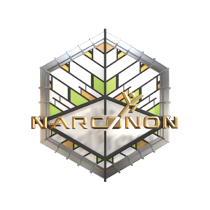An Open Letter to the Parents of Addicts

Do you feel lost? Desperate? Hopeless? With no end to this never-ending nightmare in sight? Having a son or daughter battling with drug or alcohol addiction and wreaking havoc on their lives and the lives of those that love them, is, without question, one of the most excruciatingly painful experiences a parent can have. Many parents feel dealing with an addicted loved one is worse than death. At least with death, there can be some sort of closure, albeit, not the closure we might desire.
My dad once told me he hoped that I would get thrown in jail, and I often did, but at least then he knew I was in a safe place, or at least a safer place than where I was. My mom had all but given up. After all, this had gone on for years and just they thought things were going well, something stupid would happen and the downward spiral continued.
As a parent, and a former addict, I wanted to pass along some information that has been useful for me and thousands of other people throughout the years. When things seem confusing and overwhelming the one true path out starts with you, as a parent. It starts with you, as a parent, making a decision to move forward with ground rules to help guide you. This in and of itself will provide some stability in your life and eventually in the life of your addicted loved one.
This would include deciding to stop doing the things that you have always done. If you continue to do what you have always done, you will get what you’ve always got. Bypass the habit of solving your loved one’s problems for them. Bailing them out of jail, paying their bills, providing transportation, giving them a roof over their head, food to eat, and the list can go on and on and on. Stop the routine of always reacting to the latest catastrophe or chaotic upset that is created all the time. Start putting the problem at arms-length. Be there for them as a resource to help them get treatment but not to clean up their messes. You keep cleaning up the messes and they are going to keep making them. They should suffer the consequences of their bad decisions early. And very importantly, when you stop enabling them, you need to be prepared to take action to get your loved one into treatment and get the help they need to overcome their addiction.
Have the correct estimation of the effort it takes to overcome addiction. Don’t expect someone to overcome a huge problem like addiction without you yourself being educated about it. The major barriers to achieving lasting recovery are:
1.) Cravings, both mental and physical cravings for drugs or alcohol
2.) Depression. Many people feel like this could be driving the addiction when in fact it is a result of the addiction and the condition of a person’s life. Rarely do I see depression as the cause of the addiction. It always the other way around. There are physiological and environmental reasons for this.
3.) Guilt. With some treatment approaches asking forgiveness of others for the transgressions committed is a common practice and is a good thing. A missing component with this is the addict being able, or even knowing how to forgive themselves.
I get told all the time “I can do this on my own.” Something comparable to overcoming addiction is like getting in the ring with Mike Tyson and not even knowing how to box. This is a huge underestimation of what actually needs to take place to overcome the three barriers mentioned above. While many people do want to stop, they don’t have the tools to do so, or even see that it’s possible. It’s important that the intention to get clean turns into action. It’s rare that an addict is capable of action without outside help.
When it comes to dealing with addiction, I have a few mottos that I go by. You can never overreact when it comes to handling an addiction problem, but you can ALWAYS underreact. And, it’s never too soon to intervene on an addicted loved one, it’s always too late. If you have a loved one that is refusing help, an intervention is a vital tool that has helped millions of addicts get on the road to recovery. Don’t believe the myth that they must hit rock bottom. The “bottom” can mean death and we have no control over that, and we want to put some control in. That’s the purpose of this blog, helping you get some control over your life.
With a drug and alcohol intervention, you bring the bottom to them and greatly improve the chance of recovery while lessening the risk of some catastrophe that is likely to happen. If you would like to know more about intervention for a loved one, please reach out to Narconon Arrowhead, or you can contact me, and let’s see how we can help you.


